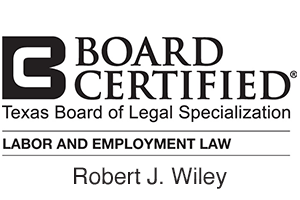in Austin, Texas
Breach of Contract
When Has a Contract Been Breached?
Employers who enter into oral or written contracts with their employees must abide by the terms of those contracts. Under Texas law, a contract is a promise that involves an offer of goods or services in exchange for other goods or services in return, with legal consequences if the agreement is breached. For example, an employment contract would involve the employer promising to provide payment, training, and other benefits; in exchange, the employee will provide their labor. Therefore, a breach of contract would arise when the employer fails to deliver a paycheck or provide the promised benefits. Contracts may be written on paper and signed, or they may be agreed to verbally.
How to Prove a Breach
There are four steps necessary to prove that your employer has breached a contract they have with you: you need to establish that a valid contract existed, you performed your obligations according to the contract, your employer did not, and that you suffered damages due to their failure to uphold their end of the agreement. Both oral and written contracts are subject to the same set of standards for proving a breach. However, if you are bringing a claim against your employer for breaching an oral contract, your employer may argue that you have misunderstood or misremembered the specified terms of the contract. You may still be able to hold them responsible for their breach, but because there is no physical record of the exact terms, oral contracts can be more difficult to enforce. It is generally a better idea to make as much effort as possible to ensure that any employment agreements you are party to are in written form. If you are unsure about how best to make your case in a contract dispute, it is a good idea to contact one of our Austin contract lawyers—our expert attorneys can help you make as strong a case as possible.
When Can You Sue?
Your ability to bring a case against your employer will depend in part on the specific terms and conditions that they have violated. This is especially true when considering a worker’s ability to sue their employer for wrongfully terminating them. In general, most employment relationships are at-will, which means the employee can be fired for any reason (or no reason) unless it is unlawful. Some employment contracts limit the employer’s ability to terminate employees to situations involving good cause, specified events, or the end of a defined term of employment. Additionally, even employers with established discipline or dismissal procedures may include disclaimers that allow them to waive those procedures as they see fit. In most circumstances the existence of such policies or procedures will not change the at-will employment relationship.
Other areas of the law are less ambiguous. If your employer refuses to pay you for the work you have done, it is a straightforward breach of contract.
How are Contracts Interpreted?
Courts in Texas construe contracts to reflect the parties’ expressed intent. Your employer does not have to include everything that you contractually agree to in one self-contained document. Multiple documents signed at the same time and in the same transaction are interpreted together for purposes of contract law. For example, if your employer has you sign one document establishing your work responsibilities, benefits, and compensation, and at the same time a separate document that lays out the office personal conduct policy and processes for dispute resolution and discipline, you are equally bound by both documents and they are considered to be part of the same overarching contract.
Contract law claims can be complicated, and employers have a variety of clever ways of attempting to insulate themselves from liability. If you believe that your employer has breached your employment contract and want to bring a claim, you should contact our Austin contract lawyers. You can get in touch with us by filling out our intake form or calling our office at (512) 271-5527.







